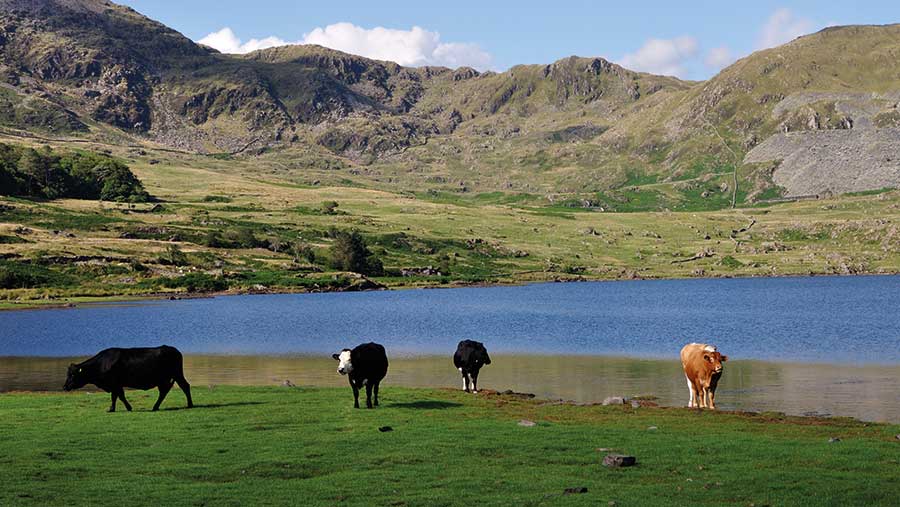NFU Cymru brands new Sustainable Farming Scheme as ‘unviable’
 © Hans-Jurgen Lange/Adobe Stock
© Hans-Jurgen Lange/Adobe Stock NFU Cymru says Wales’ new farm support scheme is unviable for dairy farmers, warning that many will not sign up because the current proposal for every holding to have 10% tree cover would force them to scale back production.
At the Welsh Dairy Show on Tuesday (25 October), the union urged the Welsh government to rethink this key requirement in the Sustainable Farming Scheme (SFS).
See also: New Welsh farm support scheme majors on tree planting
Welsh rural affairs minister Lesley Griffiths announced this week that she had extended by three weeks the deadline for industry feedback on the scheme, until 21 November.
But NFU Cymru insists that the current proposals – particularly the one regarding tree planting – will inhibit the productive capacity of dairy farms and, as a consequence, many are unlikely to join.
Speaking at the show in Carmarthen, NFU Cymru president Aled Jones said sacrificing productive land to tree planting would hinder the ability of milk producers to supply markets, both at home and abroad.
Mr Jones said farmers were “amenable’’ to increasing tree cover to add to existing trees, hedgerows and grasslands, but that planting needed to be done in a “sensitive’’ way that protected prime agricultural land and food production.
“This will look different on every farm in Wales,” he said. “The blanket approach to tree planting proposed in the scheme simply won’t work and will see many farmers, including those in dairy, opt not to join this new support scheme.”
New approach
Details of the SFS were revealed last July and they signify a major change in the way farmers are supported in Wales.
The scheme includes a three-tier approach to farm payments, starting with a “universal” set of requirements in order for farmers to receive a basic, flat-rate area payment.
This tier includes actions such as managing or creating habitats on at least 10% of each farm, operating pest control programmes, and reporting on antibiotic use.
A second “optional” tier would provide funding for measures to improve biodiversity or reduce carbon footprints, such as planting herbal leys or switching to min-till methods.
A third “collaborative” tier would support farmers to deliver public goods such as improving water quality.
Mrs Griffiths said she had extended the online survey on the SFS to help the Welsh government better understand how the scheme may work across different farm types and assess how suitable the outline proposals are.
“Working with our farmers is vital in ensuring this scheme works for them and Wales as a whole,” she said. “I encourage everyone with an interest to provide their feedback through our online survey.”
To provide feedback, visit the Welsh government’s SFS survey.
